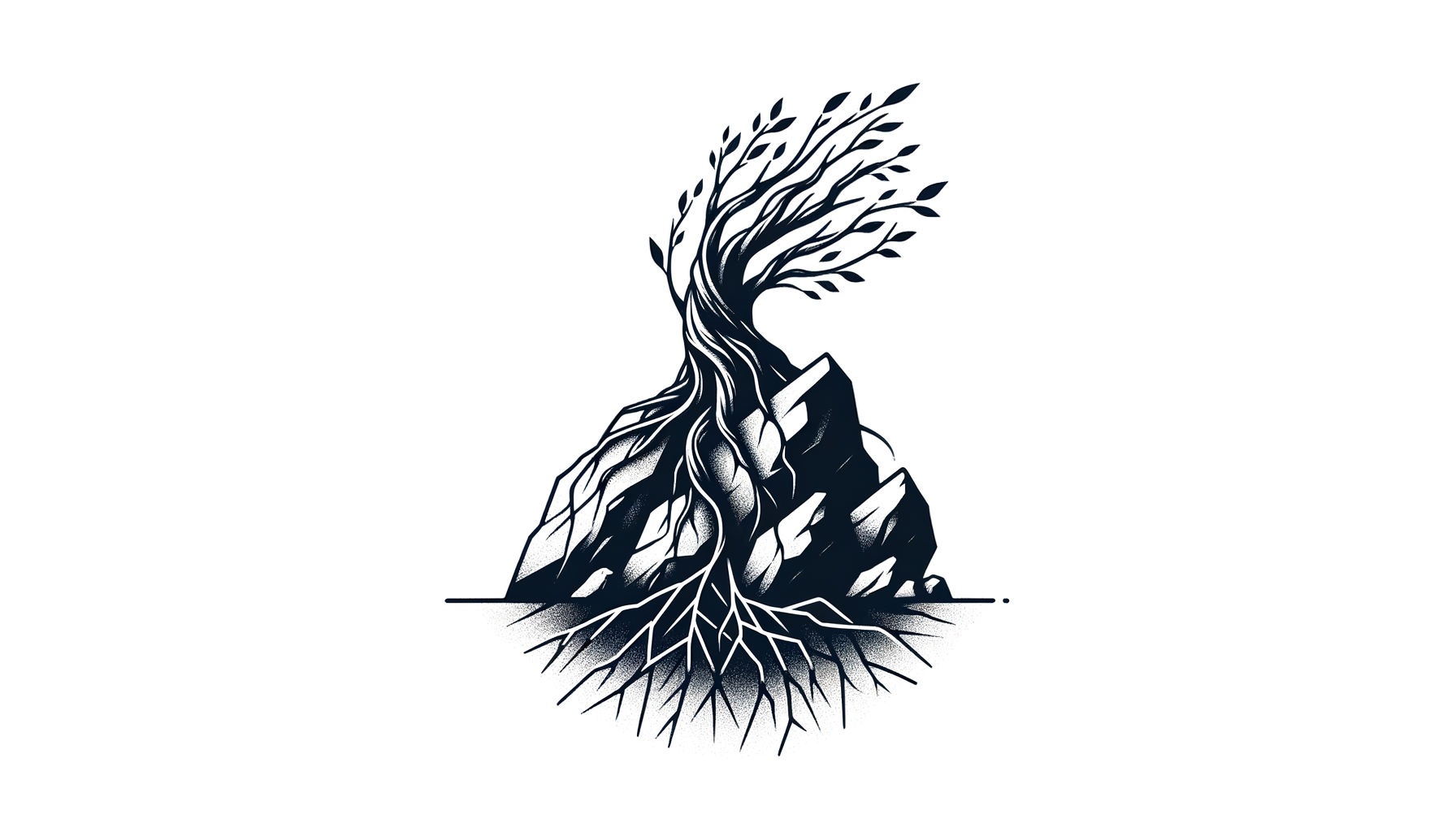I grew up believing my family ranch was just shy of sacred land. Not because we had any deep ancestral ties to it—no secret bloodlines connecting us to pioneer legends or cattle-driving royalty—but because my dad told me, with all the confidence of a cowboy poet, that “our ranch has the best soil in Colorado. Probably the whole country.”
He’d throw this phrase around like gospel, usually while surveying the property with the satisfied air of a man convinced he was living on Eden’s front porch. Every summer, he’d hitch up to the tractor, drag it across our little patch of sunburned farmland, and plant a garden with what can only be described as reckless optimism. Tomatoes, zucchini, corn, you name it. A month or two later, we’d be staring at a couple of shriveled up tomatoes and cucumbers smaller than his pinky finger. It didn’t matter. To him, this wasn’t a failure of the soil—just a sign that Mother Nature’s timing didn’t line up with ours.
My mom, less inclined toward romanticizing dirt, once muttered, “If this is the best soil in the country, I’d hate to see what the worst looks like.”
It wasn’t until I moved away for college and met people with gardens that actually produced edible things—basil bushes that rivaled my mom’s kitchen curtains and tomatoes the size of softballs—that I began to wonder if maybe, just maybe, my dad’s soil superiority story was more myth than fact. And yet, for most of my childhood, it framed how I saw not just my family but life in general. Or at least, it framed how much pride I thought we were allowed to feel in something, even when all evidence suggested we probably shouldn’t.
The Stories We Tell Ourselves
What I’ve come to realize about family myths—whether it’s about unbeatable soil or a great-great-grandparent who “invented” ranch dressing (this, shockingly, has turned up at cousin reunions)—is that they’re rarely based on cold, hard facts. They’re embroidered fragments of truth, dressed up and stretched to fit a narrative we desperately want to believe.
Sometimes, they’re harmless. Like claiming Telluride’s sunsets have more colors because “our mountain air is cleaner”—a dubious theory my grandma threw at me anytime I overeagerly described a Virginia skyline during grad school. But sometimes, especially in the realm of love and relationships, these myths are more complicated.
For me, this “best soil in the country” myth bled into how I viewed relationships. Subconsciously, I built an unrealistic parallel: if you truly love something—a ranch, a person, an idea—you don’t need evidence to prove it’s great. It just is. There can’t be room for questioning or revision. The story has to be unshakable, even if Tomatoes of Death 2.0 are staring you in the face.
This thinking got me into trouble more times than I’d care to admit. Friendships that went cold? Clearly, I just needed to “believe” in the friendship harder. That person I dated who habitually called their ex while I was in the next room? Surely we’d be fine if I ignored the facts and bought into the myth of what we should be. (Spoiler: That tactic works about as well as planting basil in permafrost.)
When Facts Mess with Feelings
If you’ve ever met someone whose family operates like a Hollywood PR team, you’ll know what I mean when I say that confronting a cherished myth can feel almost blasphemous. Nobody likes admitting the “truth” doesn’t live up to the hype. It’s easier to roll with the myth, especially when doing otherwise risks upending how you see your family—or yourself.
When I finally asked my dad about this whole “best soil” business, I was about 25, home during winter break, sitting at the kitchen table with a cup of coffee and a farmer’s market zucchini that could double as a dumbbell. “So,” I started cautiously, “how did you know our ranch soil was the best in the country?”
He didn’t even blink before replying, “Didn’t you feel it under your boots?”
This was a moment of enlightenment and frustration rolled into one big facepalm. Of course, my dad never fact-checked it. That wasn’t the point. It wasn’t about the science behind soil nutrition. It was about his connection to the land—how it made him feel. “Best” was never literal. It was emotional. And in some ways, isn’t that what love and relationships boil down to? Not what they look like on paper, but how they feel under your boots.
Here’s the thing, though: there’s a difference between appreciating a feeling and letting it convince you to ignore reality. In my case, growing up believing myths built on feeling made me a little too good at romanticizing red flags—whether I was staring down bad soil, unhealthy friendships, or toxic relationships.
Breaking the Myth Cycle
So how do you balance honoring your family’s legends—or your own idea of love—without sacrificing common sense? I don’t have all the answers, but here’s what I’ve learned:
-
Ask Questions (Without Losing the Magic)
It’s possible to challenge myths while still appreciating why they were created. These questions won’t always have satisfying answers, but sometimes, just asking them reframes how you see the story. For example, I can both roll my eyes at my dad’s soil insistence and cherish the love it reflects for the ranch. -
Separation Isn’t Betrayal
Letting go of a myth—or at least softening your grip on it—doesn’t mean rejecting where you come from. You can honor your family without clinging to every detail. For me, this meant realizing that relationships don’t have to be mythic to be meaningful. Sometimes, they’re just messy and honest and good enough—and that’s okay. -
Stop Romanticizing the Wrong Things
At some point, I realized I was projecting my dad’s “believe harder” philosophy onto relationships that were failing because they weren’t meant to succeed, not because I lacked faith. The soil—metaphorically speaking—was wrong. And that doesn’t mean I’m a bad farmer or a bad person. Sometimes, things just don’t grow no matter how hard you try. -
Trust but Verify
It’s fine to believe a story that feels good, but don’t let it override your ability to assess reality. If you’re dating someone who promises you the world but won’t introduce you to their friends, check the situation before you start naming your future dogs.
Myth-Busting with Grace
Family myths—and even personal myths—might not always hold water (or enough fertilizer to grow a zucchini fit for a bake-off), but that doesn’t mean they’re useless. They can remind us where we’ve been, what we’ve valued, and, in the best moments, how to love.
For me, it took breaking the myth of “perfect soil” to realize I wasn’t obligated to stay in imperfect situations just because I wanted to believe in them. The myth wasn’t just my dad’s anymore—it was mine to own and reconsider.
So, to anyone clinging to a story—about your family, your past, or the person you’re dating—let me leave you with this: Your story doesn’t have to be perfect for your journey to be worthwhile. Sometimes, letting go of the myth is the first step toward growing something real. Even if all you’ve got to start with is a stubborn piece of rocky ground and a little faith in yourself.




















